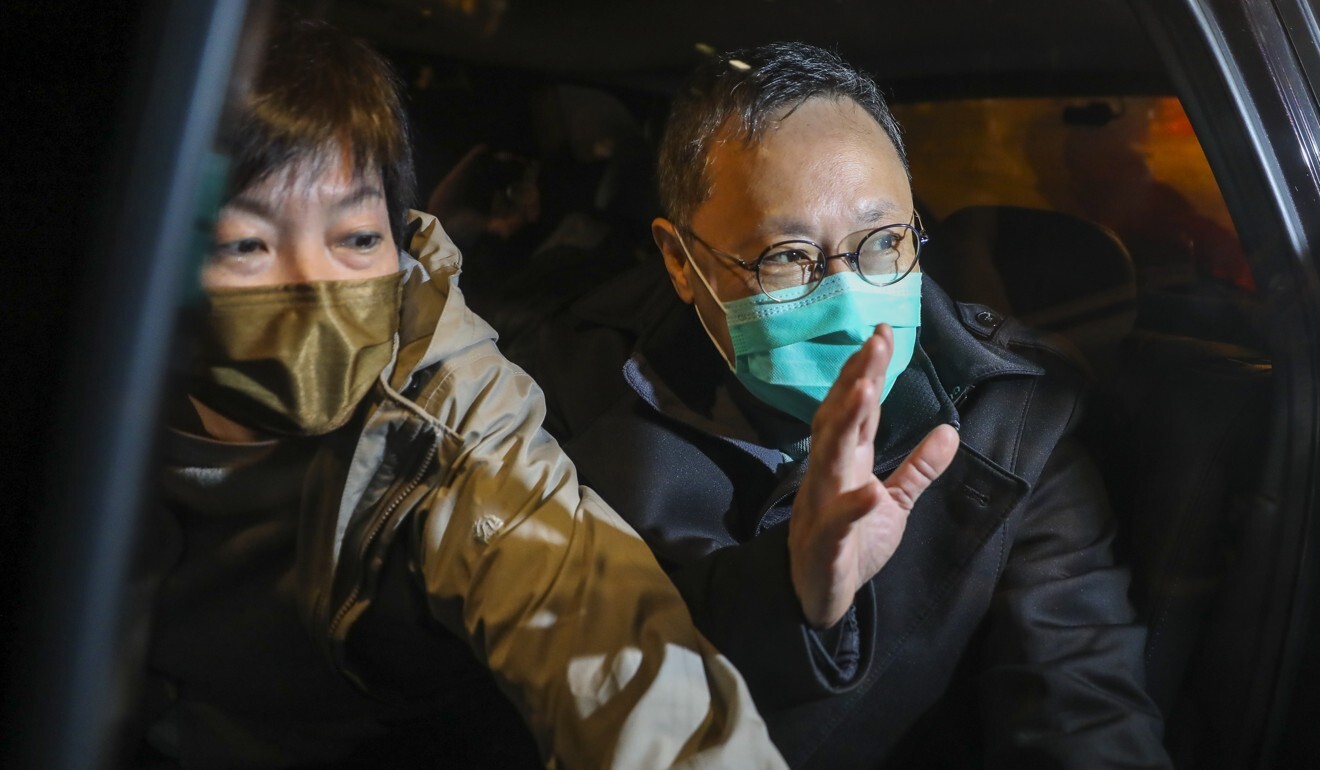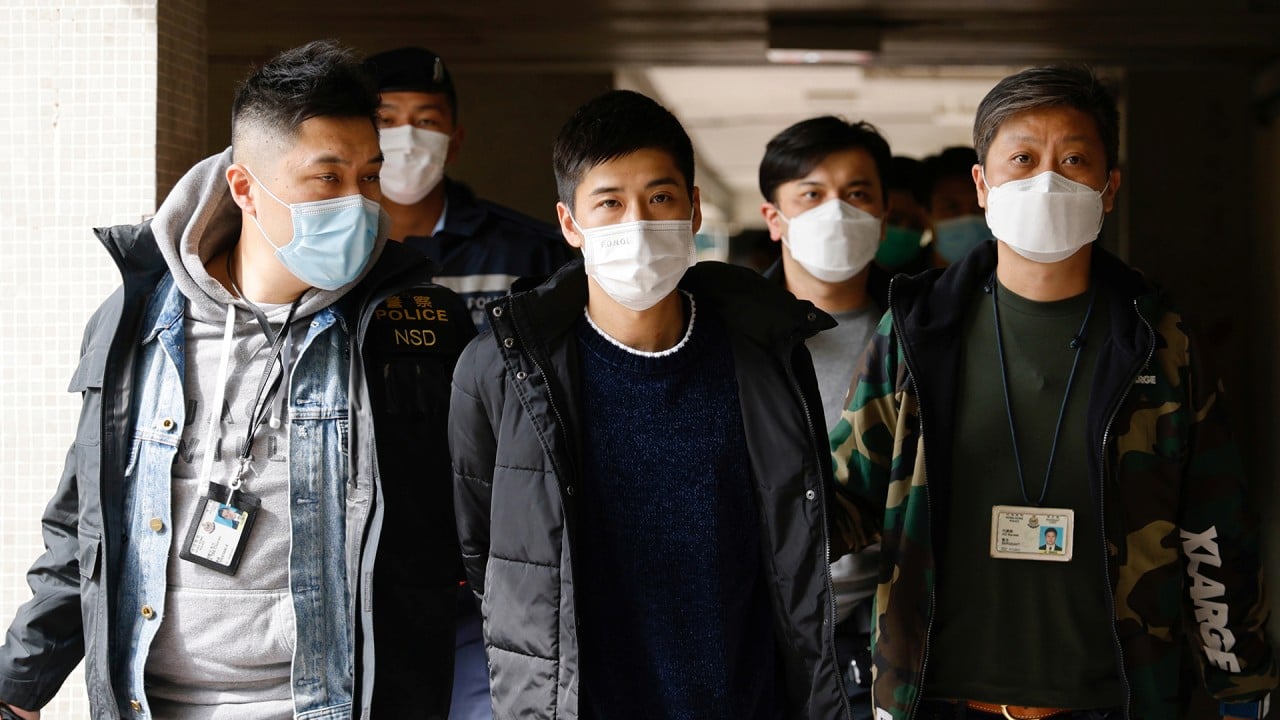
Arrest of Hong Kong opposition figures a ‘fairly obvious’ abuse of law, says new head of city’s Bar Association
- Paul Harris says arrest of 55 people in January was obvious attempt to intimidate democratic movement in city
- New chairman says he wants dialogue with Beijing as he warns against attacks on profession in media
The new head of Hong Kong’s Bar Association has called the arrest of 55 opposition figures an attempt to intimidate the city’s democratic movement, and warned against attacks on his colleagues in pro-Beijing media.
In a wide-ranging interview with the Post, Harris expressed concern over the sweeping Beijing-imposed law, and said he was keen to rebuild a dialogue with the mainland, as he set out his vision for the association’s future.

But Harris disagreed, and said it was “fairly obvious” the arrests were an abuse of the law, adding common sense would suggest those who took part in the polls did not necessarily endorse Tai’s views. Some, he noted, had even spoken out against the plan.
“So to arrest them all was, to my mind, deliberate intimidation of the democratic movement,” he said, adding the city should have a better system to handle complaints following the anti-government protests in 2019.
But Harris also described himself as a “rule of law man”, and “very much against violent demonstrations”.
Immediately after being elected unopposed on Thursday, Harris said he intended to lobby the Hong Kong government to change some of the provisions in the security law.
Outgoing Bar Association chairman calls for renewing of contacts with Beijing
“I found the national security law profoundly offensive because it said certain people’s actions can’t be challenged in the court of law,” said Harris, referring to the exemption for mainland law enforcement agents from the local court’s scrutiny when they are exercising their duty.
“I believe that the essence of the rule of law is that whoever you are, the law is above you,” he said.

03:04
Mass arrests of Hong Kong opposition lawmakers, activists under national security law
The law also stripped people in Hong Kong of their rights to a jury trial in serious cases, and allowed them to be sent to the mainland for court proceedings.
Harris said he had not had a chance to speak to other Bar Council members, but he would try his best to bring them on board. While the decision ultimately lies with Beijing, he believed the Hong Kong government and pro-Beijing figures could help start a dialogue.
The new chairman was part of the Bar’s delegation that visited Beijing in 2008, but its relationship with the mainland has deteriorated rapidly over the past three years.
He noted any resumption of ties would be in Beijing’s hands, and noted that his predecessor, Philip Dykes, “tried really hard. He was met with a great wall”.

Harris also spoke against attacks on judges, calling those assaults “cowardly and disgusting”, and said those found in some pro-Beijing newspapers – including one which suggested a judge had ruled against the police because he was friendly with the barrister of the other party – were “preposterous”.
As attacks from the pro-Beijing side have also begun to mount on lawyers, including the Bar Association, he feared that could be one reason they had turned to him to take up the chairman post.
Harris was worried the pressure had deterred some people, who were Hong Kong Chinese, to throw their hats in the ring.
Bar Association questions Beijing’s legal power to enact national security law
Hailing from the same discipline as Dykes, Harris has defended some of the most vulnerable asylum seekers and activists in the city’s courts.
When the Oxford-educated barrister was chairing the human rights committee for the English Bar in the 1990s, Dykes reached out to set up a watchdog in Hong Kong.
Since then, he had moved his practice to Hong Kong while working on setting up the advocacy body on the side.
In 1995, Harris founded the Human Rights Monitor, a major advocacy organisation.

